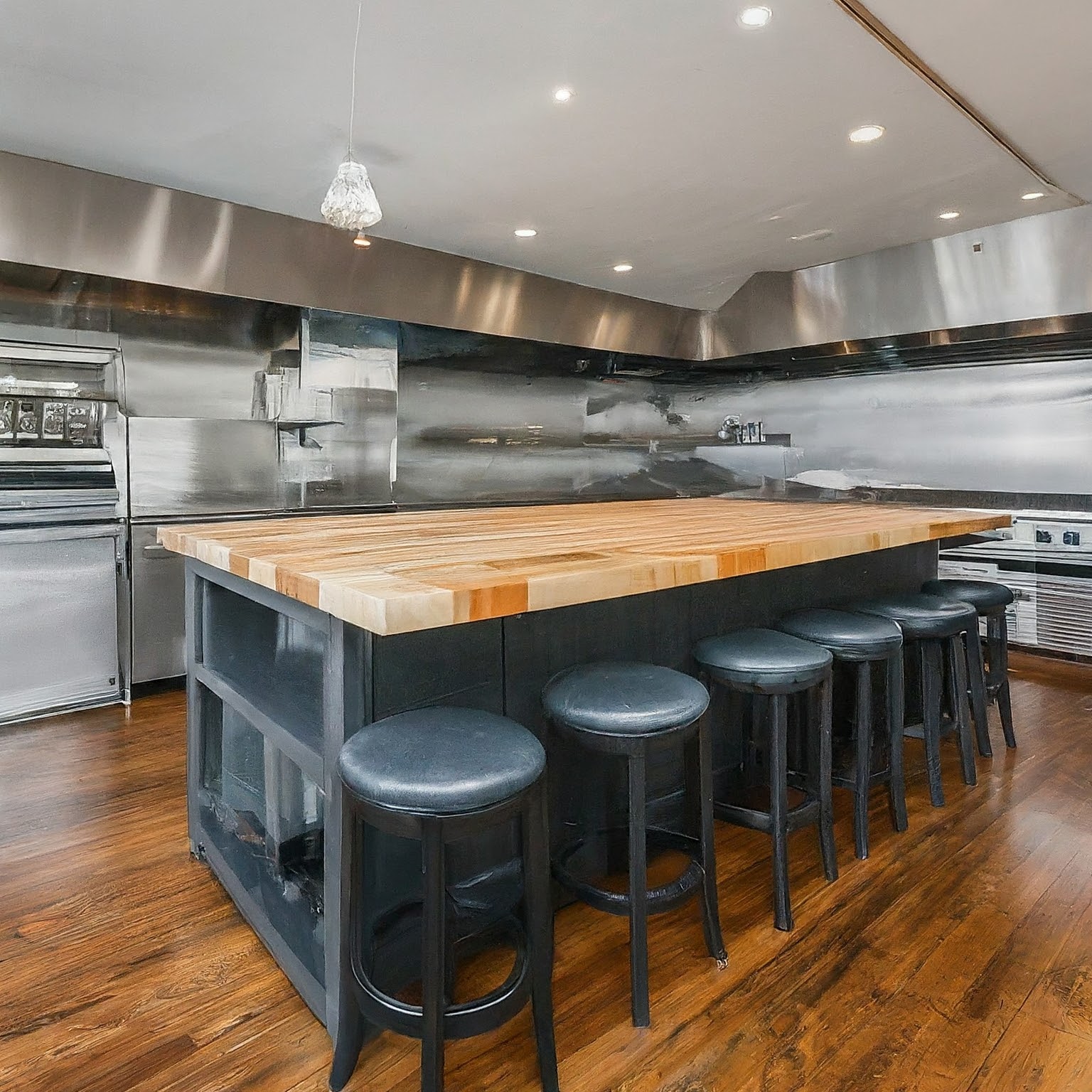Contemporary Kitchen Design: Redefining Culinary Spaces

In the bustling world of commercial kitchens, where functionality and efficiency reign supreme, contemporary design is carving a distinctive niche, redefining how these spaces look and operate. Gone are the days of sterile, purely utilitarian kitchens. Today, contemporary design principles are infusing commercial culinary environments with style, innovation, and a touch of artistry.
The Essence of Contemporary Kitchen Design
Contemporary commercial kitchens are characterized by a harmonious blend of form and function. Clean lines, minimalist aesthetics, and a focus on natural light create an open and inviting atmosphere, fostering a sense of creativity and collaboration among chefs and staff. Open-concept layouts blur the lines between the kitchen and dining areas, allowing patrons to glimpse the culinary magic unfolding.
Material Palette: A Symphony of Textures
- Stainless Steel: A cornerstone of commercial kitchen design, stainless steel offers unmatched durability, hygiene, and a sleek, modern aesthetic. It’s the material of choice for countertops, appliances, and backsplashes, ensuring a clean and professional environment.
- Natural Stone: Marble, granite, and other natural stones bring a touch of luxury and timeless elegance to commercial kitchens. These materials are often used for countertops, flooring, or statement walls, adding warmth and visual interest.
- Concrete: With its industrial chic appeal, concrete is finding its way into contemporary commercial kitchens as countertops, flooring, or even accent walls. Its raw and textured surface adds a unique character to the space.
- Wood: Wood accents, whether in the form of open shelving, butcher block countertops, or decorative elements, introduce warmth and natural beauty to the otherwise industrial setting.
Contemporary Kitchen Design Innovative Layouts & Technology:
- Ergonomics & Efficiency: Contemporary commercial kitchen design prioritize ergonomics and workflow optimization. The “work triangle” principle remains relevant, ensuring efficient movement between the sink, stove, and refrigerator.
- Flexible & Modular Designs: Adaptability is key in commercial kitchens. Modular workstations, mobile equipment, and flexible storage solutions allow for quick reconfigurations to accommodate changing menus or service styles.
- Smart Technology Integration: From smart ovens and refrigerators to automated inventory management systems, technology plays a vital role in enhancing efficiency and productivity in contemporary commercial kitchens.
Beyond Functionality: Creating an Experience
- Lighting as Artistry: Lighting is not just functional; it sets the mood and creates an ambiance. Contemporary kitchens often feature a layered lighting approach, combining ambient, task, and accent lighting to highlight specific areas and create visual drama.
- Open Shelving & Display: Showcase fresh ingredients, colorful cookware, or artistic creations on open shelves or display cases, inviting curiosity and adding a touch of visual appeal.
- Biophilic Design: Incorporating natural elements like plants, living walls, or even a glimpse of the outdoors can enhance the well-being of staff and create a more inviting environment for patrons.
Focus
Contemporary kitchen design is revolutionizing the commercial culinary landscape. By embracing minimalist aesthetics, innovative layouts, and cutting-edge technology, these kitchens are becoming spaces that not only facilitate efficient food preparation but also inspire creativity, collaboration, and an unforgettable dining experience.
From fine-dining establishments to casual cafes, contemporary design has the power to transform commercial kitchens into vibrant hubs of culinary excellence. It’s a testament to the evolving nature of the industry,
